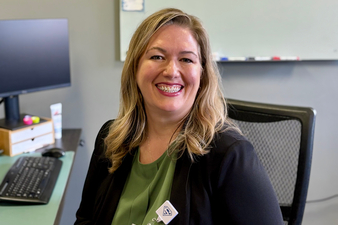Switching careers in your 30s, 40s, or 50s can be a game-changer – one that realigns your work with your values and restores work-life balance.
It could also increase your earning power. For example, fresh economic data show that employees ages 45–54 who choose to change jobs enjoy twice the annual wage growth of colleagues who stay put.
To help you make the leap with confidence, we turned to noteworthy TED and TEDx speakers who’ve navigated their own mid-career pivots and now coach others through similar transitions. Their insights offer a clear, courageous roadmap for your next big move.
1. Write Your Backstory
Lori Gottlieb’s career plays out like a choose‑your‑own‑adventure: film and TV executive, med‑school student, bestselling author, and now licensed psychotherapist. She balances a thriving practice and writes the “Ask the Therapist” column for the New York Times – proof that mid‑career pivots can become multi‑chapter success stories.
Her core insight: the story you tell yourself about work determines what comes next. When you recast “stalled” as “still evolving,” resistance fades and momentum builds.
Action item: In 20 minutes, write your career story as it feels now. Then revise it neutrally, underline the facts, and list three things you still have the power to change.
2. Identify Your Superpower
After 16 years at the University of Tunis, Sawsan Bellaj traded a secure faculty post for entrepreneurship, launching a coaching practice that now runs leadership workshops for Tunisian firms and global multinationals.
Her opening move – then and now – is a strengths inventory. When you build a career pivot around strengths that come naturally and energize you, you’re more likely to thrive in the roles you choose next.
Action item: On one page, jot down tasks that leave you energized. Then invite three trusted peers to name your top talents, add their answers beside yours, and circle any strengths that appear on both lists.
3. Spark Curiosity Conversations
After accompanying her diplomat husband through seven countries, Laura Sheehan reimagined her own path, becoming a global career strategy coach. Today, she directs graduate career coaching at Georgetown University’s Walsh School of Foreign Service while running EP Career Strategies, her private firm.
Her guiding principle: talk to people doing work that excites you. Each casual conversation expands your knowledge of new fields and cultivates meaningful career connections that may one day unlock opportunities.
Action item: Pick one professional whose role intrigues you, send a brief LinkedIn or email request for a 20-minute coffee chat, schedule it, and show up with two sincere questions you want answered.
4. Prototype Your Path
Trained as an opera singer, Celeste Headlee traded arias for airwaves and built a second act as an NPR/PBS host, keynote speaker, and bestselling author of We Need to Talk and Do Nothing.
Her takeaway: insight follows action. You learn what truly drives you by running small, real-world experiments. Each test shows which environments fit and which don’t.
Action item: Pick a low-risk way to sample a new field – volunteer one weekend, accept a small freelance task, or shadow someone for a day. Schedule it within a month, complete it, then note what energized you and what drained you.
5. Cultivate Your Career Network
Chieh Huang’s résumé spans English teacher, corporate lawyer, mobile gaming founder, and cofounder/CEO of Boxed; he now serves on the Six Flags board and leads the World Economic Forum’s Global Collaboration Village.
His lesson: continual growth hinges on an actively tended circle of mentors and peers who provide guidance, feedback, and fresh opportunities.
Action item: Spend one hour mapping your current network – colleagues, alumni, friends, relatives – and highlight gaps in industries or expertise. Then join a relevant professional association or online community this week to begin filling one of those gaps.
Make Your Next Move
Each of these leaders proves that reinvention isn’t about abandoning your past; it’s about building on it with clarity and courage. Whether you’re rethinking your role or redefining your industry, small steps lead to big shifts. And you don’t have to go it alone.
Keuka College’s online M.S. in Leadership lets you study one course at a time, finish in under two years, and gain the skills to lead in business or healthcare – all within a close‑knit cohort powered by one‑on‑one faculty mentorship. Ready to lead? Request more information or apply to join the next cohort today.










